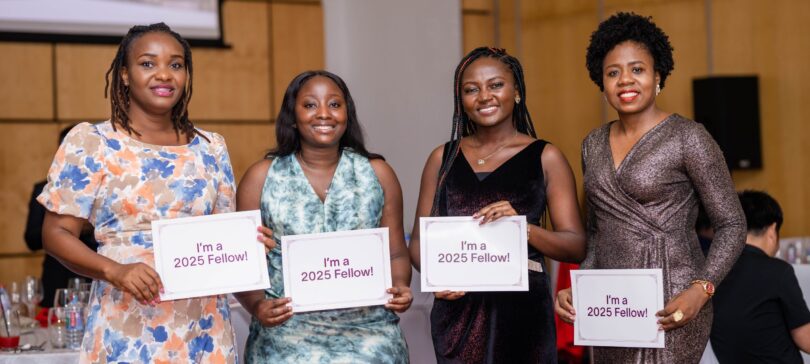Report By: News Desk
The Schlumberger Foundation has awarded 143 grants to distinguished women, enabling them to pursue advanced studies in science, technology, engineering, and mathematics (STEM) at leading institutions worldwide.
Ten women from Ghana are among the recipients selected for the 2025-2026 Fellowship.
Their research projects aim to address pressing local and global challenges, including renewable electricity storage, deforestation, sustainable construction, low-cost animal surgery and the use of robotics in medicine and agriculture.
These women were celebrated at a recent Schlumberger Foundation Women in STEM Gala Dinner in Accra, Ghana, on April 8, 2025, marking a pivotal moment in their academic journeys.
The grant awards are part of the Schlumberger Foundation’s flagship Faculty for the Future program, which provides fellowships to women pursuing PhD and postdoctoral STEM research at renowned academic institutions.
The program empowers women to become STEM leaders, with the goal of returning to their home countries to drive the economic, social, and technological advancement of their regions by enhancing STEM education, fostering science-based entrepreneurship, and promoting evidence-based policymaking.
“The Faculty for the Future program is not just about providing financial support; it’s about transforming lives. Our grantees are making significant contributions to their communities and the world.
They are the future leaders, educators, and innovators who will drive sustainable development.” said Capella Festa, President of the Schlumberger Foundation.
The in-person awards were part of a broader three-day engagement in Ghana, with the Schlumberger Foundation and SLB teams visiting the African Science Academy (ASA)—an institution dedicated to fostering the potential of young women in STEM a day prior—on April 7.
During their visit, Fellows of the Faculty For the Future program interacted with ASA students, demonstrating how renewable electricity is generated, illustrating DNA extraction techniques, and exploring the role of mathematics in data encryption—inspiring the next generation of African women scientists and reinforcing the Foundation’s commitment to inclusivity and empowerment.
The following day saw the Foundation host a comprehensive training session for a select number of Fellows and the new grantees, with sessions on personal storytelling, enhancing digital presence, effectively pitching grant proposals, and developing actionable strategies to amplify their expertise and impact.
Globally, women make up approximately 33.3% of researchers, according to the UNESCO Science Report 2021, with sub-Saharan Africa at around 30%.
In Ghana, women made up 26% of all PhD graduates in 2018, highlighting the need for initiatives that foster greater gender equality in higher education and STEM fields.
Addressing this disparity, the Faculty for the Future program has been driving change since 2004, awarding fellowships to over 950 women from 95 countries.
By empowering women in STEM, the Schlumberger Foundation furthers its mission to build a global network of female scholars and pioneers who are committed to creating innovative solutions to drive sustainable impact.
About the Schlumberger Foundation
The Schlumberger Foundation is a nonprofit organization that supports science and technology education.
Recognizing the link between science, technology, and socio-economic development, as well as the key role of education in realizing individual potential, the Schlumberger Foundation flagship program is Faculty for the Future. Learn more about Faculty for the Future and the call for fellowship applications here.
About Faculty for the Future
Since 2004, the Faculty for the Future program has awarded fellowships to 950 women from 95 countries, supporting their PhD and postdoctoral STEM research at leading global institutions.
After completing their studies, Fellows are expected to return home to strengthen local STEM sectors by advancing education, driving innovation, and shaping policy.
The program fosters collaboration and shared action, empowering women to overcome barriers to leadership in STEM.
The Schlumberger Foundation through its Faculty for the Future program seeks to ensure that more women from developing countries not only enter STEM fields but also emerge as leaders, shaping policies, inspiring the next generation through education, and pioneering innovation.
Source: www.thenewindependentonline.com








